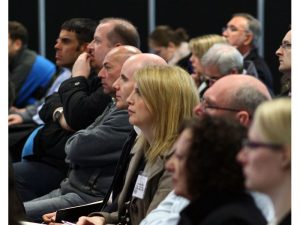TSC to focus on emerging technology and emissions reduction at LCV2016
Not-for-profit technology and innovation centre, Transport Systems Catapult (TSC), will highlight how emerging technologies and business models will enable new ways of reducing transport emissions at LCV2016.

TSC will highlight the emergence of ‘Mobility as a Service’, which will incorporate traditional cars, driverless vehicles and public transport into a service contract.
LCV2016 (Cenex Low Carbon Vehicle Event) takes place on 14-15 September in Birmingham, the TSC will highlight how emerging technologies and business models will enable new ways of reducing transport emissions – both at the vehicle and system level.
According to the TSC, ride hailing apps, car clubs and energy sharing technology are blurring the lines between private ownership and public transport – opening the door to system wide management of congestion and emissions.
Meanwhile, connected and autonomous vehicle technology will enable more emission reductions by removing the unpredictable influence of the driver. Localised modelling of pollution will ensure that any potential increase in freight and passenger travel does not adversely affect overall emissions.
Looking ahead, the TSC will highlight the emergence of ‘Mobility as a Service’, which will incorporate traditional cars, driverless vehicles and public transport into a service contract. Such arrangements will be tailored to the individual traveler and could replace vehicle ownership.
The TSC is creating a shared vision of the future of transport, through their Technology Strategy for Intelligent Mobility. This will ensure that UK government, industry and academia can better coordinate their efforts and capture more of the opportunities available. This strategy has recently been updated with a set of technology road maps that will be explored during LCV2016.













